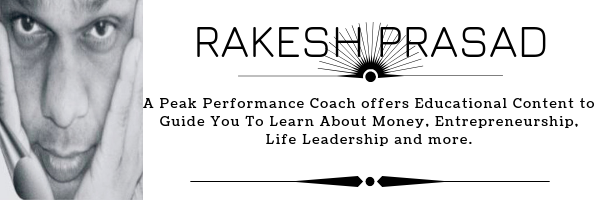The
Philosophy
of
RICH DAD
& POOR DAD
There's a difference between being poor and being broke. Broke is temporary, poor is eternal.
ROBERT KIYOSAKI, the author of the revolutionary book on personal finance, RICH DAD POOR DAD talks about the philosophy of his two dads that lead them to create and live a totally different lifestyle.
He doesn't say that one of his dads was wrong and the other was right. He points out that they had a totally different outlook towards life. Robert goes on to add that he learned a lot from both of his dads. They both wanted Robert to do good in life but fundamentally had different pathways to reach that good life.
In this blog, I have juiced out the philosophy of the two dads of Robert Kiyosaki and am presenting it for you to read and interpret with your wisdom and benefit from it.
The Philosophy of RICH DAD POOR DAD About Money
| POOR DAD [Biological Father] |
Do well in school so that you score good marks and then a good job with a good salary. |
Believed in Traditional Principle: 'Work hard and Save Money.' |
He had a doctorate degree but always struggled with money. |
More interested in good education rather than the subject of money. |
Always said: 'I am not interested in money, money doesn't matter.' |
Was preoccupied with things like job tenure, social security, salary raise, and promotions. |
He worked hard to have enough money to pay the bills. |
| RICH DAD [Best Friend's Dad] |
| Instead of saying, 'I can't afford it.' he asked himself, ' How can I afford it?' |
| He said,' Never say salary is low. Ask - how can I earn more money? This will put your brain to work and take action.' |
| He believed - When you say,' I can't afford it.' the brain stops working. |
| He learned to manage risk instead of not taking risks. |
| More than academics believed in Real Life education. |
| Was always on the lookout to build assets. |
| He worked hard to build businesses and systems. |
If you decide to pick up the book and read then these are the lessons that you can pick up and improve your financial education and financial status:
LESSON # 01:
Difference between an asset and a liability.
For most people, an asset is anything that they own like, a house, car, bike laptop, television. You get the idea.
For most people, their day job is the only source of income. So, when they retire, money stops coming.
Build a passive income source so that money keeps coming even when you don't work. Money starts working for you.
But this doesn't happen for most of us. Why? Because we are stuck in buying liabilities that we think are assets and then spend the most number of years paying for the things that we bought using the credit cards.
LESSON # 02:
Difference between being RICH and being WEALTHY
How do you measure wealth?
When is someone worthy of the title 'wealthy'?
You will understand and your mind will open up to making decisions with every rupee that you bring home from your profession. Where will you spend that money? Will it generate more money, a better lifestyle, better health or will it disappear in thin air?
WHY LEARN FROM RICH DAD POOR DAD:
Because - most of us have never been taught about money either at home or at school. What we didn't learn we can never teach our kids, and they can never teach it to their kids and the cycle goes on.
As nobody is taking the initiative to learn and teach financial literacy, the families face economic challenges.
If we appreciate why financial literacy is important and what the absence of financial literacy can lead to we will be inspired to read and update our financial literacy and leave a legacy of knowledge more precious than money.
References / Bibliography / Further reading
Kiyosaki, Robert. 'Rich Dad Poor Dad'.
*************************

No comments:
Post a Comment